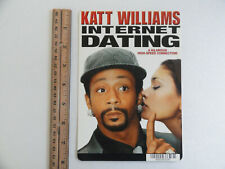
A linguistic analysis carried out by US communications experts has revealed a list of tell-tale language traits that liars use in their online dating profiles. “Generally, people don’t want to admit they’ve lied,” said Catalina Toma, from the University of Wisconsin-Madison. “But we don’t have to rely on the liars to tell us about their lies. We can read their handiwork.”
For their study, Toma and co-researcher Jeffrey Hancock, a communication professor at Cornell University, compared the personal descriptions written for four Internet dating websites with the writer’s actual height, weight and age. A detailed linguistic analysis was then performed. The complete findings appear in the Journal of Communication. Amongst the key findings:
- Liars are less likely to use the first-person pronoun “I.”
“Liars do this because they want to distance themselves from their deceptive statements,” Toma says. “The more deceptive the self-description, the fewer times you see ‘I.'” - Liars often employed negation, a flip of the language that would restate “happy” as “not sad,” or “exciting” as “not boring.”
- Profile fabricators tended to write shorter self-descriptions in their profiles.
“They don’t want to say too much,” Toma explained. “Liars experience a lot of cognitive load. They have a lot to think about. They less they write, the fewer untrue things they may have to remember and support later.” - Avoiding certain topics.
Toma said daters who had lied about their age, height or weight were likely to avoid discussing their appearance in their written descriptions, choosing instead to talk about work or life achievements.
In the second part of the study, the researchers asked a group of participants to judge the profiles based solely on the written self-descriptions. “We asked them to tell us how trustworthy the person who wrote each profile was. People are just bad at this. They might as well have flipped a coin,” Toma said, claiming the analysis provided a distinct advantage over the human assessors, correctly identifying profile liars about 65 percent of the time.
Toma says the findings are not out of line with what is known about liars in face-to-face situations. “Online daters’ motivations to lie are pretty much the same as traditional daters,” she says. “It’s not like a deceptive online profile is a new beast.”
Related:
Discuss this article in our forum
Software identifies psychopaths
Dating Tip 102: Cut yourself shaving
Goodbye Mr Nice Guy


















Comments are closed.